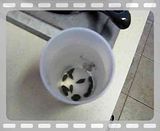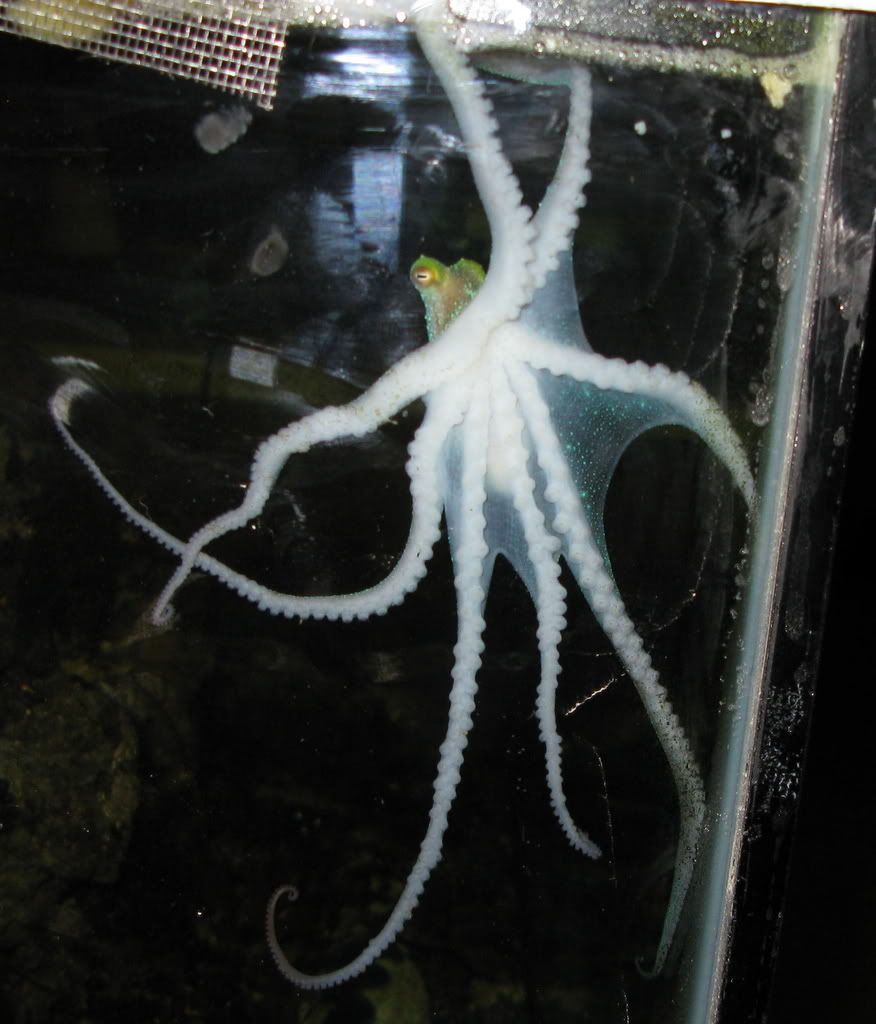You will need a 50 gallon or larger. A drilled tank is the way to go, but you can run HOB equipment as long as you secure it so that the octopus' arms don't get sucked into any pumps. You'll need to secure the top of the tank so that there are NO holes or cracks. As mentioned, they can squeeze through the tiniest of places. Having no bones does have its advantages.
You can't have any expectations for a wild-caught octopus as far as lifespan goes. Sucks, but unfortunately being a collector doesn't mean being educated in what you are collecting. Old octopuses are much easier to capture, therefore a lot of old octopuses turn up in the trade. You might get lucky and get a baby. You might get screwed and end up with a senescent (senile, decaying health) octopus. The only way to get around that is to contact your supplier and make sure they are sending you a very small one, and at the same time, not a dwarf! Now, as to whether or not your supplier can determine the difference between a baby mid-sized species and an adult dwarf is a whole 'nother issue. Most dwarfs common in the US market today are O. mercatoris. They are an "Atlantic" species coming from the Gulf of Mexico, and Florida. Avoid them. They are quite boring unless you like sitting for hours late at night waiting for 5 minutes of hunting. Dwarfs are VERY nocturnal and don't change their habits. It is quite exciting seeing them take out fiddler crabs as large as they are though.
They need extra strong filtration, so for a 50 gallon, you need equipment designed for a 150 gallon. Water changes weekly as any other tank. Octos create about 3 times more waste than an equally sized fish. They are also messy eaters so you need to keep an eye on any excess crab shells. They should not be kept with other creatures unless those other creatures are meant to be food items. Octopuses are not invincible and can be killed or severely injured by fish. Damsels have been known to peck out octo eyes, so don't use them as feeders. Octopuses prefer crustaceans anyway.
Fiddler crabs and shore shrimp make the best diet. You can try feeding thawed stuff like scallops, shrimp, krill, silversides, etc. If it takes the prepared foods then great, but you always want to try and stick to live items as they are always going to be more nutritious. Freshwater items are crap. Don't feed crap to your octopus.
This site sells
O. hummelincki aka O. filosus which is a Haitian species. They are very fun in my opinion. To me they are the perfect pet octopus species, as they stay relatively small, they are very interactive, day active instead of nocturnal (like most) and they have probably the most diverse color and texture changes I've seen in a captive octopus species. Only downside is that they are a small-egged species so the babies hatch out as planktonic larvae, instead of small octopuses.
Other species you can check out are O. vulgaris (needs 120 gallons or more) O. briareus (needs 75 gallons or more) O. bimaculoides, O. bimaculatus, and Abdopus aculeatus. These are the most common in the hobby trade and typically your best options.
This is my current octopus: O. briareus (Caribbean Reef Octopus)
When I got her

2.5 months later
th_MVI_0759.jpg" border="0" alt="" />
She's very sociable, but only active in the early morning, and late afternoon/evening. I put her in a critter keeper when I got her, about a week later I lost her and didn't see her again for another 2 weeks, and at that time she was already about 4 times bigger than when I got her. She was living off of hitch-hikers. Since then, I've trained her onto frozen foods and she approaches me when she sees me in front of the tank. For an invertebrate... a slugs cousin no less, octopuses are absolutely just as amazing as people make them out to be. They should be cared for as a pet and not just another shiney object in the glass box of water.
Anything else you need to know just ask. You might also join "****for any octo-specific information you need in the future.







